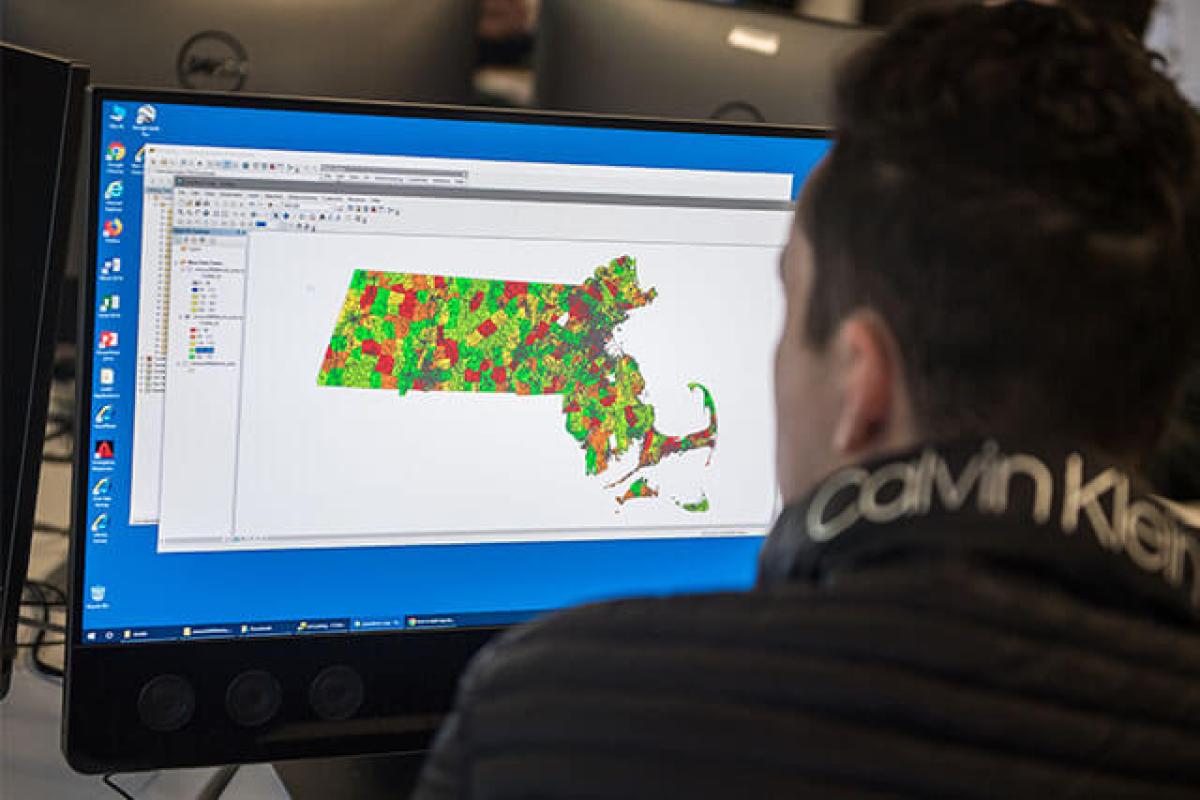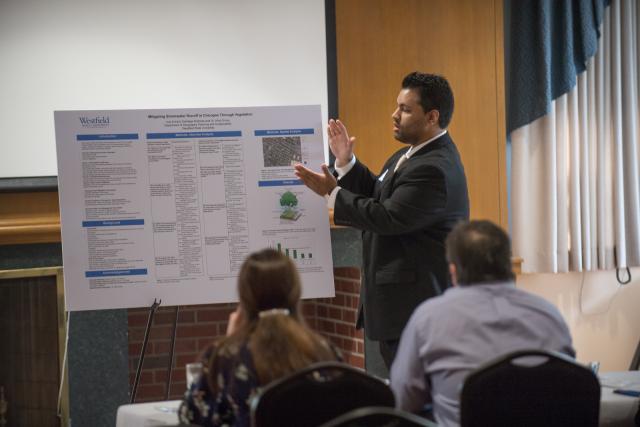
Geographic Information Systems (GIS) are essential geospatial technologies that transform data into valuable geographic knowledge. By linking location with relevant information, GIS reveals important relationships, patterns, and trends. It supports various fields, from modeling population growth and managing wildlife habitats to mapping crime and developing community evacuation plans. Urban planners, environmental scientists, biologists, and business owners rely on GIS for informed decision-making.
At Westfield State University, the GIS Minor introduces students to core concepts, analytical techniques, and the necessary software and hardware. Students complete foundational courses in remote sensing and advanced GIS applications, along with electives in statistics, environmental data analysis, and programming. This minor equips students with the skills to apply geospatial concepts to real-world challenges and communicate complex information effectively.

